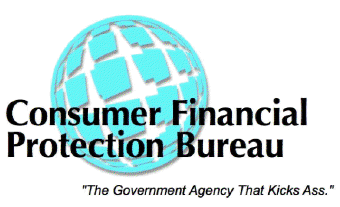
Its funding comes through the Federal Reserve at the request of the director, not Congress. The director is appointed by the president and confirmed by the Senate for a five-year term, and can only be removed by the president for just cause.
PHH Mortgage is challenging CFPB’s authority, and that of Director Cordray, while also appealing a $109 million judgment by the agency for kickbacks it received. As MHProNews reported April 14, 2016, that amount was reduced by an administrative law judge to $6.5 million, although PHH received a stay on that fine.
In the second case, a District Court judge ruled the CFPB does not have authority over a for-profit college accreditor it had sued.
PHH Attorney Ted Olson, noting the agency lacks the checks and balances that is the backbone of the U. S. constitution, said, “The separation of powers is what protects our liberties as individuals in this country.”
Legal experts have considered the effect of removing the “just cause” provision as a means for replacing the CFPB’s director with whomever and whenever the current administration decides.
More confounding would be if the court decides the agency is unconstitutional. “What happens with all the rules the bureau promulgated? Untold sums have been spent on industry compliance with the CFPB’s rules. Would those rules still apply? What about the enforcement actions that have already been finalized or the monies paid out under various consent orders?,” writes Nazzaro.
While lawmakers continue to attempt to reform the structure and accountability of the CFPB, a ruling in the PHH case is expected by the end of summer. Likely, the case will work its way through the D. C. Circuit Court and end up on appeal before the Supreme Court. ##
(Editor’s Note: The author Craig Nazzaro, writing in NMN, shared his take on this topic, which our Matthew Silver has correctly covered. This should NOT be construed to imply that MHProNews agress with that assessment.
This publisher has editorially stated for some time that on the face of it, the MLO rule at a minimum clearly seems to violate the 1st Amendment rights of free speech that every American has. To try to restrict free speech in the fashion the CFPB does is, to this editor’s mind, unconstitutional. At association meetings, this editor has shared that point publicly. MHProNews believes the facts prove that the industry, MH home owners and the home buying public will all be better off when the principles found in HR 650/S 682 are enacted into law, or are voluntarily implemented by the CFPB.)
(Image credit: steverhodegetoutofdebt.org)

